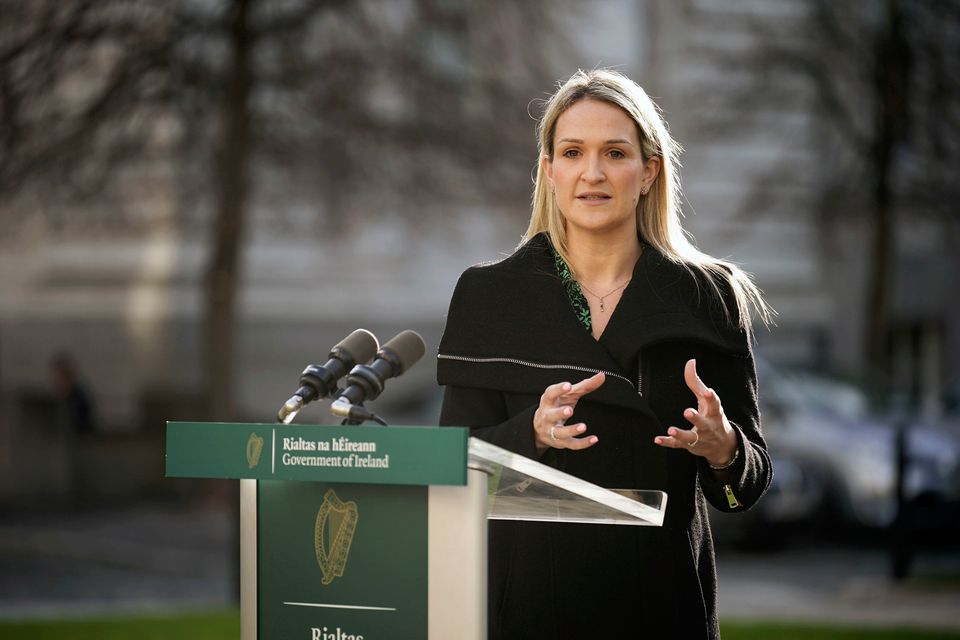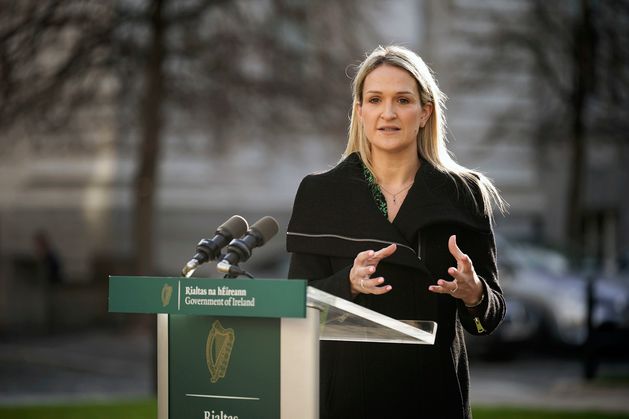Children in 5th and 6th class will learn information about homosexuality and bisexuality which is not dealt with in the current curriculum in Irish primary schools.
It has been formulated following eight years of consultations with teachers and parents, as well as 4,000 primary school pupils.
According to its outline, the curriculum will incorporate a new subject area called ‘Wellbeing’ to help children “begin to understand sexual orientation as describing attraction to someone of a different gender, the same gender or more than one gender”.
Minister for Education Helen McEntee insists that the parameters of the new materials being taught have been designed in an “age appropriate way”.
“It’s a number of things. Firstly, teaching young children how to be resilient,” she told RTÉ’s Morning Ireland programme.
“We live in a complex and a challenging world. If things don’t go a young person’s way, if they’re faced with challenges, how do we teach them to be resilient, to be able to deal with that in terms of sexual orientation.”
She added: “What is it to be attracted to another person? What does that mean for me? What does that mean for you? And it’s doing that in an age appropriate way.”
Additionally, the concept of consent will be a major theme of the adjusted curriculum, though Ms McEntee insists it is not necessarily related to sex.
“So the focus on consent – it’s not about consent and sex, it’s about a young person understanding what it is to say yes or to say no, to have their own opinion, to be able to change their opinion.”
She said that there has been an “element of misinformation” circulating about the contents of the curriculum, and she insists that its objectives are conducive to producing open-minded young people.
“I want young children when they’re leaving school to understand what basic attraction is, to understand what it is to respect each other, to understand.”
The new curriculum breaks education into five different areas:
Arts Education Language (including Modern Foreign Languages)Social and Environmental EducationSTEM Education (Science, Technology, Engineering, Mathematics)Wellbeing (PE and SPHE)
The updated syllabus represents the first time in the history of the State that children will be taught a foreign language as part of an approach to pluralise children’s world view and competencies.
The renewed focus on STEM fields aims to introduce children to real world problem-solving in the areas of digital technology.
Wellbeing will see the total time dedicated to PE and SPHE (Social, Political and Health Education) doubled compared to before. PE lessons will now be primarily based around fundamentals such as running, jumping, throwing, catching and skipping.

Minister for Education, Helen McEntee.
Today’s News in 90 Seconds – September 22nd
Ms McEntee also addressed the issue of pupil-teacher ratios, with 420,000 primary school pupils across the country finding themselves in classes of 30 or more, far above the EU average of 19.
“We have, over the last number of years, reduced our pupil-teacher ratio. It’s now at about 22:1 when you take on board the fact that you have not just teachers, you have SNA’s, you have special education teachers in the classroom.”
She added: “We have a budget coming up. I believe every cent that we spend on education and young people is to the benefit, not just of young people, but all of us, our economy, our society, our environment.
“So I will be fighting for as much money as possible.”

